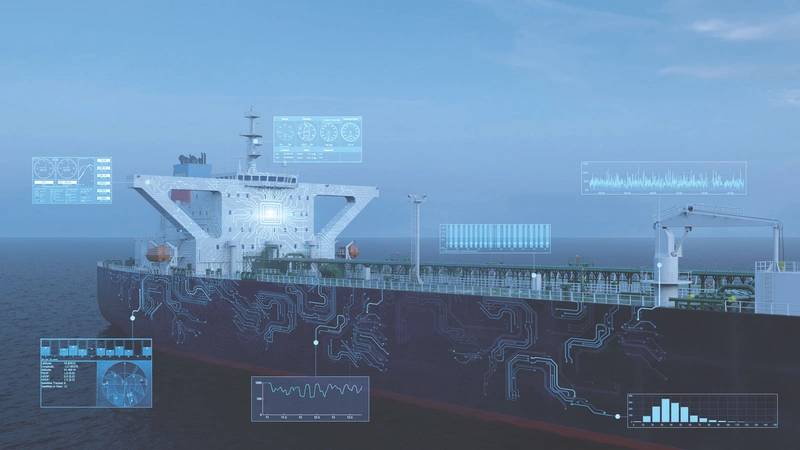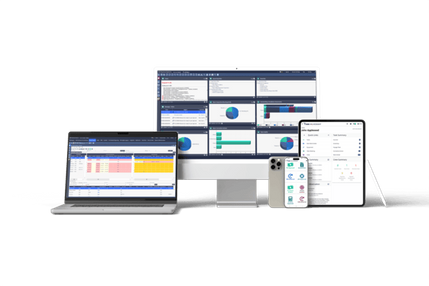Study Calls for 'Liberation of Data' in Shipping Shift for Decarbonization
Siloed data systems represent a “recipe for duplicative and multiplicative cost inside a company and across companies”, an OrbitMI-hosted panel at the recent Shipping Insight event in the US was told, as a Bureau Veritas-backed study highlighted this as a big barrier to data collaboration for digitalization of shipping to cut emissions.
Vast amounts of data are generated from ship operations - such as from sensors onboard or vessel performance management systems - as well as from within a company organization and across other companies and stakeholders in the wider industry that could be harnessed through advanced AI-driven analytics to enhance decision-making at both the voyage and fleet level to drive efficiencies.
But much of this valuable data lies dormant as it is locked within isolated applications - such as spreadsheets or email - in ‘black box’ systems based on different software platforms that make it inaccessible to other relevant parties, both between company departments and in the shipping value chain.
Bureau Veritas (BV) is now seeking to drive an industry shift in this area after forging a recent strategic partnership with maritime software firm OrbitMI.
“By partnering with like-minded individuals and companies, we can significantly accelerate our pace of innovation while working towards a common interest and benefitting from new perspectives,” BV Marine & Offshore’s VP Digital Solutions & Transformation Laurent Hentges states in the foreword to the Thetius research report, entitled Common Interest.
‘Cultural problem’
“Data silos are part of a cultural problem in shipping whereby each company has its own data repository with specialized applications to access that data, resulting in duplication of data for sharing back and forth,” Jonathan Arneault, CEO of FuelTrust, told the panel debate on Collaborating on Digitalization at the event in Stamford, Connecticut.
This restrictive approach to data access is symptomatic of a secretive industry mindset to keep data secure and protect confidential or sensitive information due to competitive concerns.
But silos can also restrict data access needlessly or to the detriment of others with a legitimate interest or use case, according to Common Interest, published by UK-based research firm Thetius together with BV.
“To move ahead with the technological evolution of the shipping industry at scale, liberating data and improving its liquidity is of vital importance. Moving data across environments and generating multiple copies of the same data has cost implications in time, money, and energy resources, not to mention the consequences of making the data more prone to error as a result of its syndication,” the report states.
Contractual & legal issues with data-sharing
However, the industry’s siloed mindset is also supported by contractual structures such as legacy charter party agreements with performance-related penalties that discourage information-sharing, highlighted in the study by software firm Nautilus Labs’ CEO Matt Heider. “A lack of data-driven collaboration is endemic to the maritime industry,” he states.
Furthermore, there can be legal barriers to data-sharing in the form of competition law and anti-trust concerns, such as EU law prohibiting anti-competitive agreements, which can hinder collaboration among like-minded shipowners - even when the goal is decarbonization.
Arneault said though it is possible to break down silos with the use of existing technologies by defining data for sharing across different platforms via the cloud, as well as through implementing data standards. This can overcome issues of data privacy and protection to enable multi-party access to data in complex transactions involving different parties such as a port call, he explained.
This is reflected in the Thetius study that states there are market-ready solutions for access challenges like the REST API exchange mechanism and placing data in a single-source location with access controls such as cloud platforms that can be used, for example, in a port community system.
 OrbitMI’s Chief Marketing Officer David Levy is promoting data-sharing in shipping. Photo: OrbitMI
OrbitMI’s Chief Marketing Officer David Levy is promoting data-sharing in shipping. Photo: OrbitMI
Operational data integration
At the level of vessel operations, shipping companies like dry cargo and product tanker operator D’Amico are looking to eliminate data silos by consolidating data from disparate systems - for example, AI-based tracking of commodity movements, voyage management and emails on vessel positions and cargoes - into unified dashboards powered by analytics.
“As we look at new systems, it becomes increasingly critical that they are able to integrate with one another,” D’Amico’s Dry Cargo Operations Manager Captain Joe Gross told the panel.
One solutions provider making ground-breaking strides in this direction is New York-based OrbitMI that has proactively sought out partnerships with competing vendors, including Nautilus Labs, to integrate multiple APIs into its vessel performance management system to enable what it calls “intelligent connected workflows” giving actionable data insights for better voyage decision-making.
“We’re trying to eliminate data silos and prevent the need to log in and out of multiple platforms and solutions. Instead, we deliver information in context, using interesting data visualisation tools,” OrbitMI’s Chief Marketing Officer David Levy, who led the panel debate, is quoted as saying in the Thetius study.
Collaborative platform
Rather than competing with other solutions, OrbitMI is taking a novel approach by pulling API data from third-party applications like voyage management and weather routing into its system to provide an enhanced integrated solution for the end-user.
BV's strategic collaboration with OrbitMI is geared to developing new data-driven solutions to fuel decarbonization as it pursues a collaborative data platform accessible to multiple stakeholders, enabling digital connectivity through the integration of their existing systems.
Levy states one way of changing the industry’s “secretive and protectionist” mindset on data access is through controlled data-sharing and collaboration.
“If businesses have nothing to hide from their customers and trade partners and are able to share things which bring about a mutual benefit, I think that is a powerful evolution for our industry,” he states.
- This is the second article in a three-part series highlighting the topic of data collaboration in maritime featuring OrbitMI and BV. Read the first article "Digitalization: Maritime Charts its Course"
















